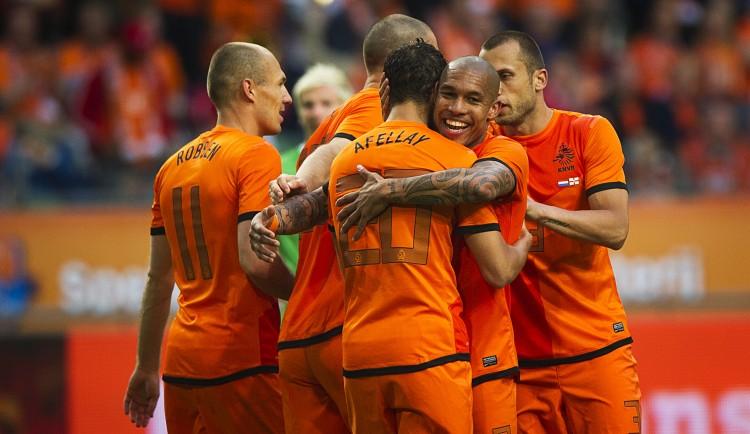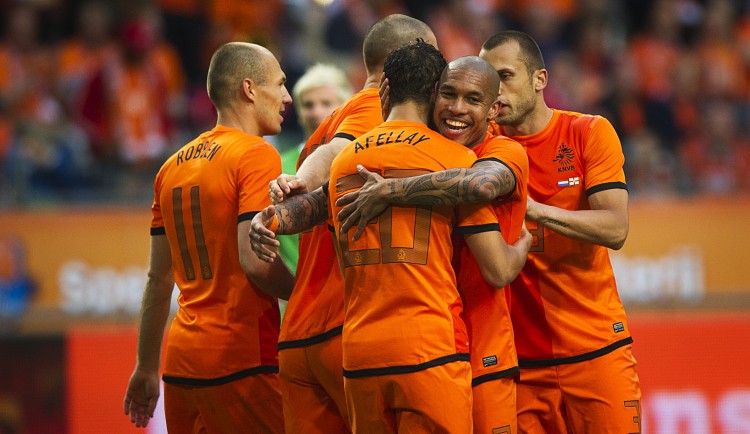HILVERSUM, Netherlands—In anticipation of Euro 2012 held in Poland and the Ukraine, the street view in the Netherlands is gradually turning orange, the Dutch national color. Yet, the outbreak of the so-called “orange fever” or “orange madness” is somewhat slower than in previous big tournaments.
This is mainly due to a series of mediocre performances in friendlies and public dissatisfaction with the defensive style and the Dutch team’s line-up. Yet, debate in a country with 16 million national coaches is actually also part of the tradition.
The Netherlands prides itself for being the inventor of a very attacking style called “total football.” This also implies that the Dutch public demands attractive, technical, and attacking football of its players and coaches.
But attractive football has not brought the desired results. The Netherlands became European champions only once, at the 1988 European championships in Germany.
Despite the criticism, Bert van Marwijk has an impressive record as national coach. The Dutch reached the final of the 2010 World Cup under his guidance and were electrifying in qualifying for Euro 2012 playing both good football and getting good results.
Attack
Traditionally, the strongest part of the Dutch team is the attack. This year is no exception. But exactly the abundance of good attackers is posing a problem for coach van Marwijk, as choices have to be made.
The top scorers of both the Premier League, Robin van Persie, and the top scorer of the German Bundesliga, Klaas-Jan Huntelaar are competing for the central striker position. It appears that van Persie is first choice now, as he is more well-rounded and better in developing the play, whereas Huntelaar is a target man, and more static.
Many commentators and famous former Dutch players, such as Johan Cruijf, have suggested to have both strikers play on the same team but that would involve a change of system, which the rather conservative coach is unlikely to implement. It remains to be seen how one of the two will respond to the disappointment of sitting on the bench. Dealing with unhappy players has become a major factor in modern day football.
On the wings, Arjen Robben and Ibrahim Affelay appear to be a certainty. Both players have a great dribble, individual talent, and scoring ability, but they tend to run to the inside (toward the goal) instead of giving a pass to the striker, as a traditional winger would.
This sometimes results in isolation and very little chances for the center forward/ striker. This might explain why van Persie didn’t shine during the World Cup 2010.
The midfield is crowded and there is abundant choice. Van Marwijk probably will stick to those who have proven their value in the past. In that system, Wesley Sneijder will be the most attacking midfielder. Van Bommel and De Jong are a defensive block in the midfield as to compensate the traditionally weakest part of the Dutch team: the defense.
Defense
“Have there been inquiries in the Dutch parliament yet?” reacted van Marwijk to the umpteenth question about the forward position.
The most eminent problem for the Dutch is the defense. Precisely, the most dependable Dutch defender, Joris Mathijsen, is injured and will not be fit in time for the first game against Denmark.
Then there is the huge question mark for the left back position. In the current selection there is only one person who plays at that position for his club: the 18-year-old Jetro Willems.
Though talented and quick, he has little experience at the highest level and appeared shaky at times. The other option is Stijn Schaars, who has experience but not on that postiion. The last option, Wilfried Bouma, has experience on that position but is past his prime and lacks speed.
Goalkeeper Maarten Stekelenburg is dependable.
Group of Death
Netherlands are facing their arch-rival Germany, Portugal, and the talented Danes in Group B. The advantage is that the Dutch will play their first game against the Danes, which on paper should be the easiest game.
If they win that game they stand a good chance to play well against the other sides as the pressure will be on either Germany or Portugal, who face each other in their first matches.
If the Dutch can keep their head clear, they have the capability to come far. Yet, the current situation of the Dutch team bears a lot of resemblance to the past, and that is not a good omen.
The Epoch Times publishes in 35 countries and in 19 languages. Subscribe to our e-newsletter.





